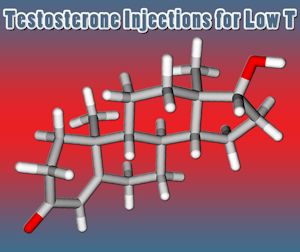Introduction to Penile Sensitivity
Penile sensitivity is a critical aspect of male sexual health, influencing both physical sensation and psychological well-being. As men age, changes in penile sensitivity can occur, affecting sexual function and overall quality of life. This article explores the medical perspective on how aging impacts penile sensitivity, with a focus on American males.
The Science of Penile Sensitivity
Penile sensitivity is primarily governed by the nerve endings located in the penis, particularly in the glans and foreskin. These nerve endings are responsible for transmitting sensory information to the brain, which is crucial for sexual arousal and orgasm. The density and functionality of these nerve endings can change over time, influenced by various factors including age, health status, and lifestyle choices.
Aging and Its Effects on Penile Sensitivity
As men age, several physiological changes can affect penile sensitivity. One of the primary changes is the reduction in the number and sensitivity of nerve endings. This can lead to a decrease in the intensity of sensations experienced during sexual activity. Additionally, aging can result in decreased blood flow to the penis, which is essential for maintaining erections and enhancing sensitivity.
Hormonal changes, particularly a decline in testosterone levels, also play a significant role. Testosterone is crucial for maintaining sexual function, and its reduction can lead to diminished libido and sensitivity. Furthermore, conditions such as diabetes and cardiovascular disease, which become more prevalent with age, can exacerbate these effects by further impairing nerve function and blood flow.
Medical Interventions and Management
Understanding the impact of aging on penile sensitivity is the first step toward effective management. Medical interventions can include hormone replacement therapy to address low testosterone levels, which may help improve sensitivity and sexual function. Medications such as phosphodiesterase type 5 inhibitors (e.g., Viagra) can enhance blood flow to the penis, potentially improving sensitivity and erectile function.
For men experiencing significant changes in penile sensitivity, consulting with a healthcare provider is essential. A thorough evaluation can help identify underlying conditions that may be contributing to the issue, such as nerve damage or vascular disease. Treatment plans can then be tailored to address these specific concerns, potentially involving a combination of medication, lifestyle modifications, and, in some cases, surgical interventions.
Lifestyle Factors and Penile Health
Lifestyle choices play a crucial role in maintaining penile sensitivity as men age. Regular physical activity can improve overall cardiovascular health, which in turn supports better blood flow to the penis. A balanced diet rich in nutrients can also contribute to maintaining healthy nerve function and hormonal balance.
Avoiding smoking and limiting alcohol consumption are important, as these substances can negatively impact blood vessels and nerve endings. Additionally, practicing safe sex and maintaining good genital hygiene can prevent infections that might affect penile sensitivity.
Psychological Aspects of Penile Sensitivity
The psychological impact of changes in penile sensitivity should not be underestimated. Many men may experience anxiety or depression related to perceived declines in sexual performance. Open communication with partners and seeking support from mental health professionals can be beneficial in addressing these concerns.
Conclusion: Embracing Aging with Knowledge and Care
Aging is a natural process that brings about various changes, including those affecting penile sensitivity. By understanding these changes and their underlying causes, American males can take proactive steps to manage their sexual health effectively. Through a combination of medical interventions, lifestyle adjustments, and psychological support, men can maintain a fulfilling sexual life well into their later years. Embracing aging with knowledge and care is key to preserving both physical and emotional well-being.
Contact Us Today For A Free Consultation

- Understanding the Psychological Toll of Penile Health Issues on American Men [Last Updated On: March 10th, 2025] [Originally Added On: March 10th, 2025]
- Managing Penile Skin Conditions: Symptoms, Treatments, and Psychological Support for American Males [Last Updated On: March 13th, 2025] [Originally Added On: March 13th, 2025]
- Genetics of Penile Development: Insights into Male Reproductive Health [Last Updated On: March 18th, 2025] [Originally Added On: March 18th, 2025]
- Penile Enlargement: Safety, Efficacy, and Informed Decision-Making in American Males [Last Updated On: March 18th, 2025] [Originally Added On: March 18th, 2025]
- Medications and Male Sexual Health: Impacts on Penile Function in American Males [Last Updated On: March 18th, 2025] [Originally Added On: March 18th, 2025]
- Penile Nerve Blocks: Enhancing Pain Management and Surgery for American Males [Last Updated On: March 19th, 2025] [Originally Added On: March 19th, 2025]
- Obesity's Impact on Penile Function: Physiological, Hormonal, and Psychological Insights [Last Updated On: March 20th, 2025] [Originally Added On: March 20th, 2025]
- Understanding Penile Trauma: Types, Emergency Care, and Long-term Management Strategies [Last Updated On: March 20th, 2025] [Originally Added On: March 20th, 2025]
- Penile MRI: Revolutionizing Diagnosis of Male Sexual Health Conditions [Last Updated On: March 20th, 2025] [Originally Added On: March 20th, 2025]
- Testosterone's Crucial Role in Penile Health and Function: A Comprehensive Overview [Last Updated On: March 21st, 2025] [Originally Added On: March 21st, 2025]
- Advancements in Penile Prostheses: Restoring Function and Enhancing Quality of Life [Last Updated On: March 21st, 2025] [Originally Added On: March 21st, 2025]
- Optimal Penile Hygiene Practices for American Males: A Comprehensive Guide [Last Updated On: March 21st, 2025] [Originally Added On: March 21st, 2025]
- Lifestyle Choices and Their Impact on Penile Health in American Males [Last Updated On: March 21st, 2025] [Originally Added On: March 21st, 2025]
- Penile Vascular Health: Understanding, Diagnosing, and Managing for American Males [Last Updated On: March 22nd, 2025] [Originally Added On: March 22nd, 2025]
- Penile Ulcers: Causes, Diagnosis, and Treatment for American Males [Last Updated On: March 22nd, 2025] [Originally Added On: March 22nd, 2025]
- Penile Reconstruction: Techniques, Outcomes, and Future in American Males [Last Updated On: March 22nd, 2025] [Originally Added On: March 22nd, 2025]
- Penile Biopsy: Diagnosing Urological Conditions in American Males [Last Updated On: March 23rd, 2025] [Originally Added On: March 23rd, 2025]
- Understanding Penile Numbness: Causes, Diagnosis, and Treatment Options for American Males [Last Updated On: March 23rd, 2025] [Originally Added On: March 23rd, 2025]
- Penile Skin Grafts: Indications, Procedures, and Outcomes for American Males [Last Updated On: March 24th, 2025] [Originally Added On: March 24th, 2025]
- Spinal Cord Injuries: Impact on Penile Function and Treatment Advances [Last Updated On: March 24th, 2025] [Originally Added On: March 24th, 2025]
- Penile Lymphatic System: Functions, Disorders, and Health Maintenance for American Males [Last Updated On: March 24th, 2025] [Originally Added On: March 24th, 2025]
- Understanding and Managing Penile Swelling: A Guide for American Males [Last Updated On: March 24th, 2025] [Originally Added On: March 24th, 2025]
- Penile Ultrasound: Diagnosing Sexual Dysfunction in American Males [Last Updated On: March 24th, 2025] [Originally Added On: March 24th, 2025]
- Penile Blood Tests: Diagnosing Systemic Health in Men [Last Updated On: March 25th, 2025] [Originally Added On: March 25th, 2025]
- Penile Sensory Neuropathy: Symptoms, Diagnosis, and Management Strategies in Penis Science [Last Updated On: March 25th, 2025] [Originally Added On: March 25th, 2025]
- Radiation Therapy's Impact on Penile Health: Effects and Management for American Males [Last Updated On: March 25th, 2025] [Originally Added On: March 25th, 2025]
- Understanding Penile Rashes: Types, Causes, Treatments, and Prevention Strategies [Last Updated On: March 25th, 2025] [Originally Added On: March 25th, 2025]
- Penile Arteries: Key to Erection Health and Cardiovascular Wellness in American Males [Last Updated On: March 25th, 2025] [Originally Added On: March 25th, 2025]
- Chronic Diseases and Penile Health: Impacts and Management for American Males [Last Updated On: March 25th, 2025] [Originally Added On: March 25th, 2025]
- Penile Girth's Impact on Sexual Satisfaction: Medical Insights and Enhancement Options [Last Updated On: March 25th, 2025] [Originally Added On: March 25th, 2025]
- Understanding Penile Discharge: Causes, Symptoms, and Treatment Options for American Males [Last Updated On: March 25th, 2025] [Originally Added On: March 25th, 2025]
- Understanding Penile Warts: Causes, Symptoms, and Treatment Options for American Males [Last Updated On: March 26th, 2025] [Originally Added On: March 26th, 2025]
- Understanding Penile Veins: Anatomy, Function, and Common Disorders in American Males [Last Updated On: March 26th, 2025] [Originally Added On: March 26th, 2025]
- Chemotherapy's Impact on Penile Health: Insights for American Males [Last Updated On: March 26th, 2025] [Originally Added On: March 26th, 2025]
- Understanding and Managing Penile Allergies: Symptoms, Diagnosis, and Strategies [Last Updated On: March 26th, 2025] [Originally Added On: March 26th, 2025]
- Understanding Penile Edema: Causes, Diagnosis, and Treatment for American Males [Last Updated On: March 26th, 2025] [Originally Added On: March 26th, 2025]
- Understanding and Managing Penile Pain: Causes, Diagnosis, and Relief for American Males [Last Updated On: March 26th, 2025] [Originally Added On: March 26th, 2025]
- Understanding Penile Lesions: Types, Causes, and Effective Treatments for American Males [Last Updated On: March 26th, 2025] [Originally Added On: March 26th, 2025]
- Hormonal Imbalances and Their Impact on Male Penile Health: A Comprehensive Guide [Last Updated On: March 26th, 2025] [Originally Added On: March 26th, 2025]
- Penile Prosthetics: A Comprehensive Guide for Treating Severe ED in American Males [Last Updated On: March 27th, 2025] [Originally Added On: March 27th, 2025]
- Penile Nerve Anatomy: Impact on Sexual Health and Function in American Men [Last Updated On: March 27th, 2025] [Originally Added On: March 27th, 2025]
- Dietary Impact on Penile Health: Key Nutrients and Eating Patterns for American Men [Last Updated On: March 27th, 2025] [Originally Added On: March 27th, 2025]
- Understanding Penile Discoloration: Causes, Symptoms, and Treatment Options for American Males [Last Updated On: March 27th, 2025] [Originally Added On: March 27th, 2025]
- Neurological Disorders and Penile Function: Impact and Management for American Males [Last Updated On: March 27th, 2025] [Originally Added On: March 27th, 2025]
- Managing Penile Itching: Causes, Symptoms, and Effective Treatments for American Men [Last Updated On: March 28th, 2025] [Originally Added On: March 28th, 2025]
- Penile Health: Impact on Physical and Psychological Well-being in American Males [Last Updated On: March 28th, 2025] [Originally Added On: March 28th, 2025]
- Understanding Penile Bleeding: Causes, Symptoms, and Emergency Care for American Males [Last Updated On: March 28th, 2025] [Originally Added On: March 28th, 2025]
- Penile Piercings: Health Risks, Types, and Medical Advice for American Males [Last Updated On: March 28th, 2025] [Originally Added On: March 28th, 2025]
- Penile Sensitivity: Impact on Male Sexual Health and Function [Last Updated On: March 29th, 2025] [Originally Added On: March 29th, 2025]
- Understanding Penile Lumps: Types, Causes, and Management for American Males [Last Updated On: March 29th, 2025] [Originally Added On: March 29th, 2025]
- Penile Health and Fertility: Insights and Management for American Males [Last Updated On: March 30th, 2025] [Originally Added On: March 30th, 2025]
- Penile Injuries: Impact on Sexual Health and Management Strategies for American Males [Last Updated On: March 30th, 2025] [Originally Added On: March 30th, 2025]
- Understanding Penile Sores: Causes, Symptoms, and Treatments for American Males [Last Updated On: March 30th, 2025] [Originally Added On: March 30th, 2025]
- Understanding and Treating Penile Redness in American Males: Causes, Symptoms, Solutions [Last Updated On: April 2nd, 2025] [Originally Added On: April 2nd, 2025]
- Penile Dermatitis: Symptoms, Causes, and Treatment Options for American Males [Last Updated On: April 3rd, 2025] [Originally Added On: April 3rd, 2025]
- Penile Health: Enhancing Sexual Wellness and Partner Satisfaction in American Males [Last Updated On: April 4th, 2025] [Originally Added On: April 4th, 2025]
- Penile Health and Mental Well-being: A Holistic Approach for American Males [Last Updated On: April 5th, 2025] [Originally Added On: April 5th, 2025]
- Causes, Diagnosis, and Management of Penile Burning in American Males [Last Updated On: April 5th, 2025] [Originally Added On: April 5th, 2025]
- Penile Health's Impact on Urinary Function: Insights and Care for American Males [Last Updated On: April 7th, 2025] [Originally Added On: April 7th, 2025]
- Managing Penile Dryness: Causes, Symptoms, and Effective Dermatological Treatments [Last Updated On: April 8th, 2025] [Originally Added On: April 8th, 2025]
- Penile Health and STI Prevention: A Comprehensive Guide for American Males [Last Updated On: April 8th, 2025] [Originally Added On: April 8th, 2025]
- Understanding Penile Blisters: Causes, Symptoms, and Effective Management Strategies [Last Updated On: April 9th, 2025] [Originally Added On: April 9th, 2025]
- Penile Health and Hormonal Balance: Insights for American Males [Last Updated On: April 11th, 2025] [Originally Added On: April 11th, 2025]
- Penile Health's Impact on Prostate Wellness: A Guide for American Males [Last Updated On: April 12th, 2025] [Originally Added On: April 12th, 2025]
- Understanding and Managing Penile Sensitivity Disorders in American Males [Last Updated On: April 12th, 2025] [Originally Added On: April 12th, 2025]
- Penile Health and Fertility: Insights and Strategies for American Males [Last Updated On: April 13th, 2025] [Originally Added On: April 13th, 2025]
- Understanding Penile Foreskin Health: Causes, Symptoms, and Medical Interventions [Last Updated On: April 13th, 2025] [Originally Added On: April 13th, 2025]
- Managing Penile Odor: Causes, Symptoms, and Effective Treatment Strategies for Men [Last Updated On: April 13th, 2025] [Originally Added On: April 13th, 2025]
- Penile Health as a Cardiovascular Indicator: Study Insights and Preventive Measures [Last Updated On: April 14th, 2025] [Originally Added On: April 14th, 2025]
- Penile Health and Sexual Function: Insights for American Males [Last Updated On: April 15th, 2025] [Originally Added On: April 15th, 2025]
- Penile Health and Immune System: A Vital Connection for American Males [Last Updated On: April 16th, 2025] [Originally Added On: April 16th, 2025]
- Managing Penile Irritation: Causes, Symptoms, and Dermatological Treatments for American Males [Last Updated On: April 18th, 2025] [Originally Added On: April 18th, 2025]
- Penile Health and Endocrine Disorders: Causes, Symptoms, and Management Strategies [Last Updated On: April 19th, 2025] [Originally Added On: April 19th, 2025]
Word Count: 588





















